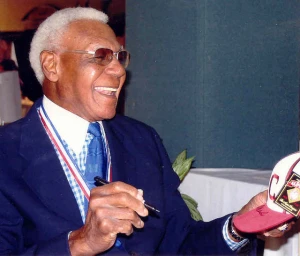
In the end, it wasn’t them. It was us. Since late April, we’ve been watching the Celtics with our eyes half-covered because we told ourselves we’d seen this team fall short so many times before. But that’s not really true. The first legitimate chance the current version of the Celtics had of winning it all was in 2022, and they were outclassed by a much better Golden State team. Last year, yes, they woke up too late and couldn’t overcome Jayson Tatum’s sprained ankle in Game 7 of the conference finals. But that’s the only time they should have gone farther but didn’t.
This year? A dominating regular season followed by a magnificent 16-3 playoff run. By far the best team they played was Indianapolis, and yet that was somehow their only sweep. The other series: 4-1, 4-1 and an emphatic 4-1 against Dallas, which proved to be an inconsistent Luka Doncic and a bunch of guys. As Bob Dylan once put it, “What looks large from a distance, Close up ain’t never that big.”
My favorite Celtics championship team is the 2008 squad, with the incomparable Kevin Garnett along with Paul Pierce and Ray Allen. Yes, I was a fan of the Larry Bird-led 1980s teams and the ’70s-era teams with Dave Cowens, John Havlicek and Paul Silas. But there was something special about 2008.
I may have to revise that. There were so many great story lines this year. Al Horford’s endless quest for a championship, finally fulfilled. Questions about whether Tatum and Jaylen Brown could play together — exaggerated by the media, but not completely without foundation. The emergence of Derek White. The addition of Jrue Holiday. (Admit it: We all feel a little guilty at being glad that fan favorite Marcus Smart isn’t around anymore.) The injuries to Kristaps Porzingis, who managed to play 16 minutes in the closer and actually made a few contributions after a rough start. Joe Mazzulla’s emergence as a decent coach.
I thought Tatum would get the Bill Russell MVP trophy after taking the team onto his shoulders Monday night and carrying them to victory. Brown got it instead, which is fine, because he was more consistent throughout the Finals. His improvement over the past year has been nothing short of remarkable. After utterly failing to step up after Tatum’s sprained ankle against Miami last year, he became the highest-paid player in the NBA over the summer, which had a few of us scratching our heads. And then he went out and earned it, at least to the extent that anyone can “earn” $286 million. How fitting is it that he’s now won playoff trophies named for Russell and Bird?
By adding Holiday and Porzingis last year, Brad Stevens turned an almost-good-enough team into the NBA’s best. If the Celtics are going to have a chance at repeating, though, Stevens may need to work some magic again. I’d be astonished if Horford doesn’t retire. Porzingis needs surgery on his ankle, and he may be better suited to a 20-minutes-a-game role as a bench player given his fragility. Can Stevens bring in a reliable big man? Other than that, though, the Celtics are well-positioned for another championship run.







